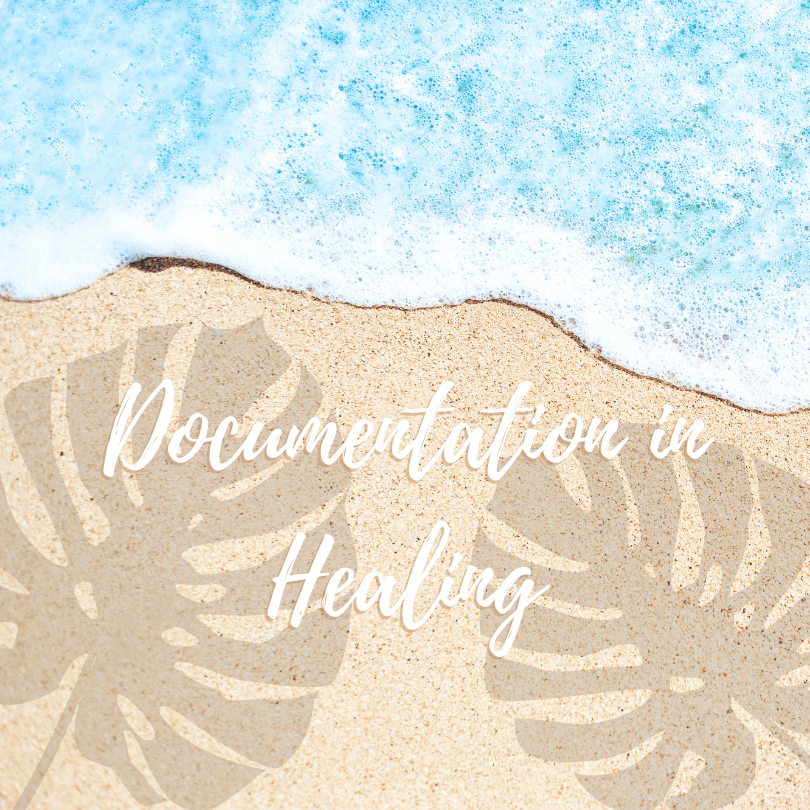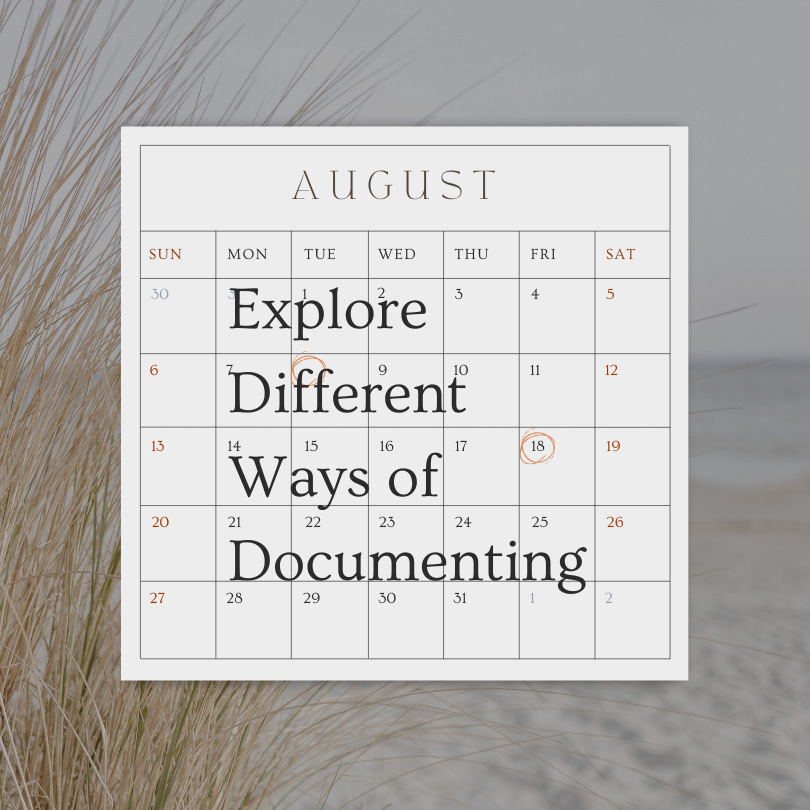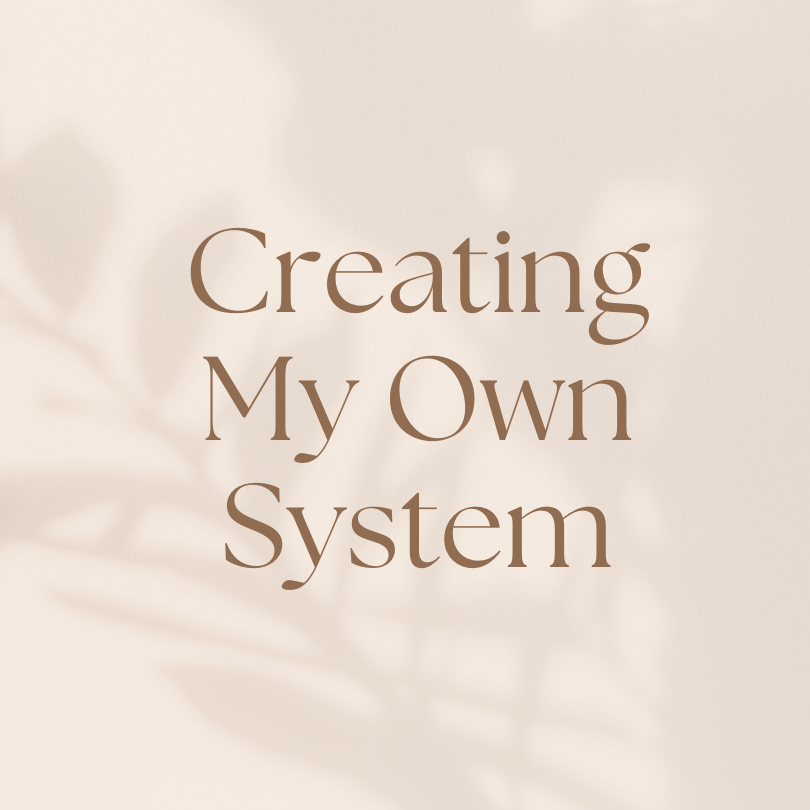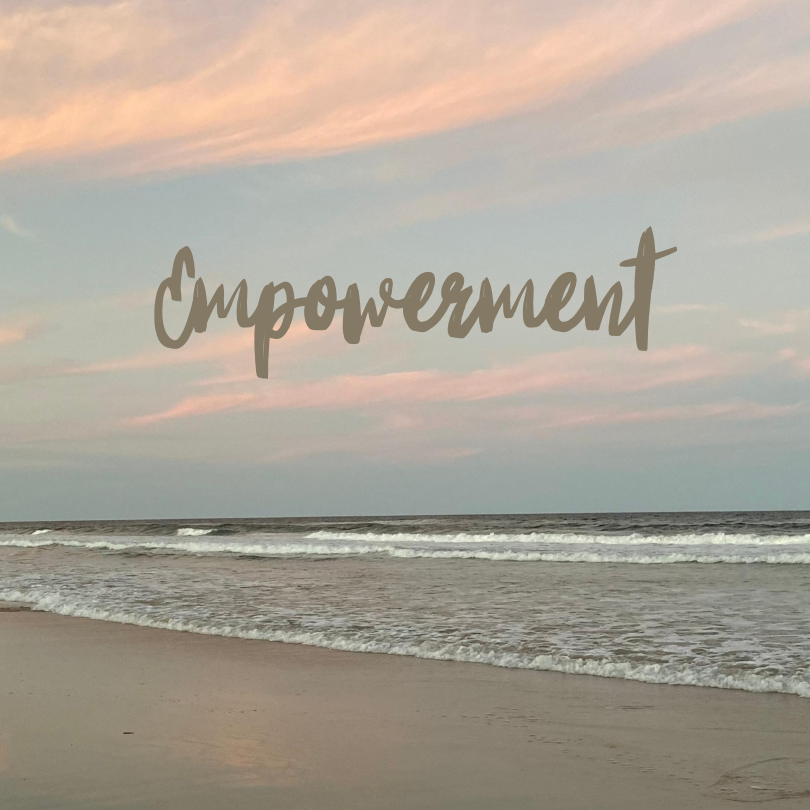Before finding my voice through documentation, the idea of leaving my abusive relationship was a journey that demanded every ounce of my strength and courage. It honestly was one of the scariest things I have ever done! When I took that first big step away from my ex-husband, I was met with advice from well-meaning friends and family, all urging me to “document it.” But I had no clue what that meant or where to begin. As I embarked on my path to healing, I realized that documenting my experiences was an important part of my recovery and the divorce process. It wasn’t a simple task; it was a journey in itself. This blog post shares my journey of finding my voice through documentation, from saving emails to creating a personalized system that empowered me to heal.

1. The Role of Documentation in Healing
Documentation plays a pivotal role in your healing process after experiencing abuse. It is a tangible record of your experiences, helping you validate your feelings and actions. Here’s why documentation is so essential:
- Validation: Abusers often manipulate their victims using gaslighting techniques, making them doubt their reality. Documenting incidents provides victims with concrete evidence that what they experienced was real and unacceptable. When you’re tempted to question yourself or your memories, referring back to your records can ground you in the truth and provide reassurance that your experiences are valid.
- Empowerment: Documenting your experiences shifts the power dynamic. It lets you catch the wave of regaining control over your narrative, placing you on the board as you ride your healing journey. By carefully recording your experiences, you’re not just a passive survivor but riding the waves as an active participant in your recovery. You’re taking charge, carving your path, and refusing to let the abuser script your story.
- Legal Protection: Your thorough documentation can serve as an excellent ally when legal action becomes necessary. Documentation can help your stance in restraining orders, custody battles, divorce proceedings, and anything that might arise. These records become your shield in the legal arena, presenting a factual and chronological account of the abuse you’ve faced. By laying out the timeline and details, they strengthen your credibility and heighten the probability of obtaining the protection and justice you rightfully deserve.
2. The Puzzle of Documentation
When I left my ex-husband, I listened to all the advice. I saved all our emails, text messages, and any communication that held a piece of my story. But as time passed, I was overwhelmed with scattered records and no clear direction. I knew I needed a more organized approach to truly understand the significance of what I was doing.

3. Embracing Various Methods
In my quest for effective documentation, I explored different methods that resonated with me:
- Calendars and Planners: I attempted to use calendars to mark significant dates, but it felt like a mere timeline without capturing the emotions and nuances of my journey. Eventually, I discovered that calendars were most effective for recording incidents that had specific dates, such as court hearings, threatening messages, incidents of abuse, and if my ex took visitation or showed up to activities.
- Journals: Writing down my thoughts and feelings in a journal was helpful and therapeutic, but it didn’t capture the evidence I needed to validate my experiences. I found that combining Journaling with incident documentation allowed me to connect my emotional responses with the abusive behaviors I was experiencing.
- Note Pads: Jotting down incidents as they happened in real-time using notepads proved helpful for immediate recollection but lacked structure for a comprehensive view. I have found that keeping a notepad handy was invaluable for jotting down sudden memories or thoughts that might be relevant to my documentation later.
- Technology: While digital evidence was crucial, keeping it secure and well-organized was challenging, and technology isn’t allowed in the courthouse where I live. I began creating folders on my computer to save screenshots of messages, emails, and things that were shared with me. I made sure to organize them by date and type for easy reference.

4. Crafting My Own System
Determined to make documentation work for me, I decided to take matters into my own hands:
- Customized Journaling: I merged elements from different methods to create my unique documentation system. I maintained a dedicated journal where I wrote down my emotions and noted specific incidents, conversations, and their impact on my well-being. This approach allowed me to tie together the emotional toll with concrete evidence.
- Digital Storage: As someone who isn’t particularly tech-savvy, I found my way around creating folders on my computer. This is where I keep screenshots of text messages, emails, voicemails, and other things I can use for potential legal needs.
- Three-Ring Binders: A few years after I left my ex-husband, I discovered how helpful three-ring binders could be. As a way to keep all my documentation together, these unassuming binders emerged as an unexpected source of organization and empowerment. As I faced scattered court orders, records, and all kinds of documentation, the need for something structured became clear. As I gathered more and more documentation, the three-ring binders became invaluable. Using them allowed me to meticulously arrange everything I needed, advocate for myself and my kids, and keep things in order year after year in my post-abuse journey.
- Calendars and Planners: I found calendars and daily planners incredibly helpful. It allowed me to write down every communication, visitation times, and involvement in our kid’s school and activities. Over time, this thorough record-keeping showed me a pattern of his behavior that was hard to ignore. This documentation played an important part in my case, providing clear proof I could use in court. Using calendars and planners also validated my feelings and experiences, which had often been questioned.

5. Finally, Finding My Voice Through Documentation
I came to understand that documentation is a personal voyage. As I navigated through learning how to document, it hit me that this journey is like creating a path uniquely suited to your circumstances. It’s about experimenting, making mistakes, and gaining insights along the way. It became clear that no universal solution fits everyone – it’s about discovering what works for you and your situation. Whether you use calendars, Journaling, or specialized apps, it’s all about adapting these tools to suit you. It’s a process where you determine what details are most significant, how to identify patterns, and how to make sure the documentation fits your goals. This empowered me when I realized I could do what was most comfortable. As a coach, I’m here to ride alongside you on this journey. My role is to help you navigate the shifting tides and discover the strategy that suits you perfectly. Together, we’ll ride the waves of documentation, finding the best approach that works best for you.
- Reclaiming Control: My newfound clarity allowed me to be prepared for what lay ahead. The three-ring binders I created became more than just physical objects; they were symbols of my commitment to gaining control over the chaos that had overwhelmed me in the past. Every document I put in my binders allows me to take back ownership of my narrative. I realized I was no longer tied to my ex-husband’s version of events or gaslighting attempts. I had solid evidence to counter any attempts at manipulation. This newfound sense of control turned those binders into being able to protect me from the destructive currents of the harmful narratives that used to engulf me. As I flipped through the pages, I could see how far I had come, the progress I had made, and the hurdles I had overcome. It was a living testament to my resilience and my determination to thrive despite the adversity I had faced. In the end, reclaiming control wasn’t just about the documentation; it was about reclaiming my story and life. Through organizing my experiences, I found a powerful tool that provided clarity and gave me the strength to move forward with purpose and resilience.
- Validation Through Patterns: Embracing my customized documentation system validated my experiences and provided an unexpected benefit—protecting my children. Looking closely at my documentation, I could see clear patterns. I could see the escalation of certain behaviors and how they directly affected me. Seeing these patterns also allowed me to see how things affected my kids. I could document the regularity of my ex-husband’s visits, how he communicated with me and the kids, and how often he would attend the kid’s activities. It also let me see the kid’s behaviors leading up to and after visits with my ex-husband. By showing these patterns, I could show therapists, lawyers, and GAL’s how his behavior impacted me and the kids. Presenting concrete evidence of his actions allowed me to take steps to protect my kids from potential harm. As I flipped through my binders, I traced the evolution of my journey not only as a survivor but also as a mom fiercely dedicated to the well-being of my kids. Each page was a testament to my commitment to healing, growing, and shielding them from the harm they had already endured. In embracing the documentation journey, I discovered that it extended far beyond validating my experiences; it was a tool of empowerment that fortified my determination to create a safer and more secure environment for my children.
- Encouraging Self-Care: Keeping track of my journey through documentation became a way to take care of myself. It wasn’t just about writing down what happened; it was also a way to sort out my feelings about things. I could look back and see how much I had grown and how far I had come in my healing process. Putting together these records was like a regular reminder that I was actively moving toward a better future. It felt like I was giving myself a boost with each entry – a way to process my thoughts and feelings and make sure I was looking after myself.
When I left my abusive relationship, the concept of documentation was foreign to me. I eventually learned it was more than just keeping records—it was a lifeline to validation, empowerment, and healing.
Don’t underestimate the role of documentation in healing. Finding a documentation system that worked for me was a journey of self-discovery and reclamation. By merging various methods and customizing my own system, I found my voice and took charge of my narrative.
While initially confusing, my documentation journey evolved into an integral part of my healing process, empowering me to stand strong and rebuild my life on my terms. Just as no two stories are alike, no two documentation methods are the same.
Your path to healing is unique, and finding a system that works for you can be a powerful tool in your journey of self-discovery and renewal. As you document your journey, remember that your strength and resilience guide you toward a brighter, more empowered future.
Let’s Start Your Healing Journey
Leaving an abusive relationship isn’t easy, it takes strength, courage, and more support than I could imagine. That’s why My Hidden Scars is here. I want you to know you’re not alone. You’ve got this, and I’m right here to back you up every step of the way.
I can help you set up a personalized documentation system just for you that captures the vital information you need to keep track of. I’ll assist you in sorting your records in a way that boosts your confidence and strengthens your case, just in case you need to take legal action.
Don’t let the fear of what’s next keep you stuck. Give me a shout today. I’m here to help you navigate this journey, take back your story, and start your healing. Your strength and resilience will lead you to a brighter, more empowered future. I’m here, cheering you on every step of the way.






Hello! I am pre pairing for trial on June 6th 2024..I would love to have some assistance with documenting. I am coming from an abusive realtiinship with my children’s father and is currently seeking custody. Any assistance will be greatly appreciated.
I would love to help you; reach out and offer a consultation.
[…] he wasn’t informed. This constant need for reminders can be exhausting, but it also serves as documentation that you’ve done your part. Keeping a record of these interactions can be invaluable if you need […]